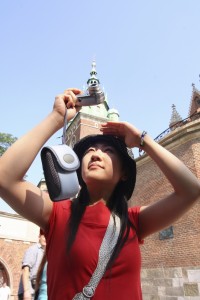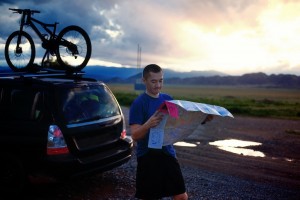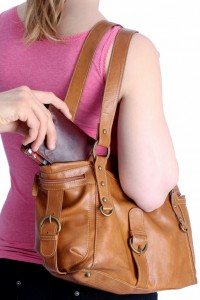The following is a guest blog post from our friend and well-known travel expert, Rudy Maxa.
You’re driving along a highway in Italy and a car pulls up beside side you beeping and pointing to your rear tire. The concerned-looking driver’s gestures suggest you pull over to the side of the road.
Don’t do it.
You’re walking across a lovely bridge in Paris and a stranger comes up to you holding a gold ring and asking if you’ve just dropped it. No, you say, and the stranger looks puzzled and asks what you think the two of you should do with the potentially valuable ring.
A friendly local approaches you on the street in Istanbul and asks if he can offer any sightseeing advice. And then he asks where you’re from, and it turns out he has a cousin who goes to school near your hometown.
Don’t waste your time.
Your taxi driver in Bangkok tells he knows a jewelry store where you can find incredible bargains on gold and gems.
Be very firm when you say, “No, thank you.”
All of the above scenarios are—to greater and lesser degrees—cons being played on tourists every day, all over the world.
That guy urging you to pull over to the side of the highway may well rob you.
The Parisian with the gold ring wants to engage you in a conversation that will wind up costing you money when he convinced you it’s solid gold and sells it to you at a deep “discount.”
The chatty local in Istanbul really wants to take you to his carpet store.
 Accept the invitation of the Thai taxi driver, and you may wind up with a phony piece of jewelry worth a fraction of what you paid.
Accept the invitation of the Thai taxi driver, and you may wind up with a phony piece of jewelry worth a fraction of what you paid.
It’s well known that we often leave our common sense at home when we travel. Especially abroad where the language differences and the desire to appear pleasant lead us to engage in situations we’d walk away from in our hometown.
There are dozens of other cons, including the “money exchange” during which someone on the street offers you an inflated rate of exchange for your money. After much shuffling back and forth, you’ll find you’ve been swindled.
There are fake police who might stop you on your street and demand to search your wallet for counterfeit money.
There are cons who will ask you to take their picture with their camera, then fumble the camera when you hand it back to them and try to extort money to replace their “broken” camera.
Store cashiers pretending to talk on a cell phone when you hand them your credit card may really be photographing your card.
I know about scams. My television crew had their bank accounts looted of more than $20,000 in South Africa because of a card reader inserted in a gas station’s ATM. I was surrounded by men one winter morning in a St. Petersburg market (way back when that city was still “Leningrad”) and felt several pairs of hands frisking my coat pockets for valuables as they pressed around me. (They got my small camera but not my money.) And everyone knows the vintage pickpocket scam that begins when a stranger “accidentally” spills something on you to distract you as his partner lifts your wallet, passport, or watch.
Here are my recommendations for avoiding getting taken while on the road:
- Never pull over to the side of a road unless it’s in a busy parking lot, gas station, toll booth area,
 or police station.
or police station. - Simply say no to ANY offer to introduce you to someone who can offer you a great deal on ANYTHING. Or to anyone who offers to change your money or split the funds in a wallet just “found” on the street.
- Don’t open your hotel door to “room inspectors” who will filch a valuable or two as they pretend to check the quality of housekeeping. (Hint: They work in pairs.)
- Don’t use an ATM machine if anyone is standing around you or if there’s an unusual protuberance in the card slot. Watch out for small cameras meant to record you as you enter a PIN.
- Avoid beggars who approach you. And make sure your valuables are hidden on your person when you’re in crowded places such as markets, public events, or subway stations. Thieves are wise to fanny packs and money belts. Check out a line of stylish clothing from www.CleverTravelingCompanion.com that has zippered pockets in impossible-to-reach places. And keep $20 or $30 and an expired credit card in your pocket. If you are ever held up, you’ll have something to offer up.
Finally, make sure you have a travel assistance membership (single trip or annual) with On Call International in case any of these scenarios happen to you. On Call is just a phone call away and can provide medical, security and travel assistance services anywhere, anytime you’re 50 miles or more from home.
Travel Safely! – Rudy



